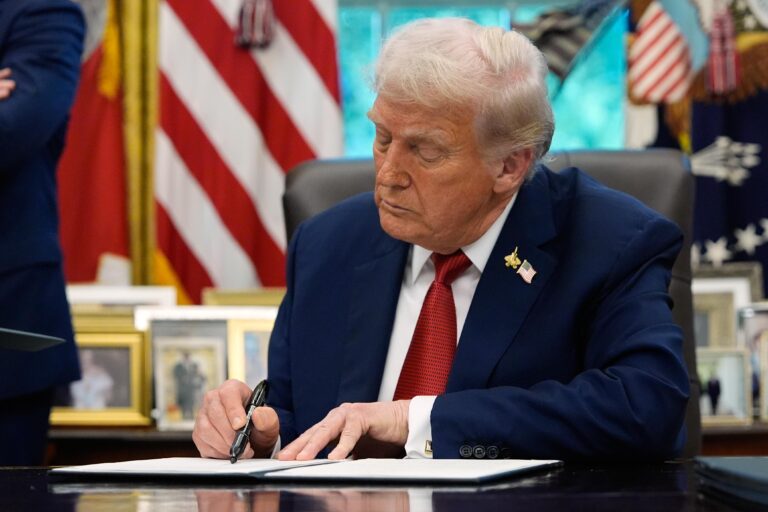Trump’s Proclamation Revives Federal Death Penalty in Washington D.C.: A New Chapter in Capital Punishment Policy
Former President Donald Trump has enacted a proclamation reinstating the death penalty for specific federal offenses committed within the District of Columbia. This landmark decision represents a dramatic policy reversal in a jurisdiction that had largely distanced itself from capital punishment. The directive applies to grave crimes such as first-degree murder, terrorism, and fatal kidnappings, positioning the death penalty as a federal sentencing option regardless of local D.C. statutes. This development not only reshapes the legal framework in the nation’s capital but also reignites national discourse on the ethics and efficacy of capital punishment.
Federal Death Penalty Reintroduced in D.C.: Scope and Legal Framework
In a decisive policy shift, the Trump administration authorized the federal government to impose the death penalty for certain violent crimes within Washington D.C., overriding the district’s previous restrictions. This proclamation specifically targets offenses including but not limited to first-degree murder, terrorism-related acts, and kidnappings resulting in death. By asserting federal jurisdiction, the administration aims to strengthen deterrence against severe crimes in the capital.
Highlights of the proclamation include:
- Federal death penalty enforcement supersedes local D.C. prohibitions
- Emphasis on deterring violent federal offenses in the district
- Implications for federal judicial proceedings and law enforcement coordination
| Offense | Death Penalty Eligibility | Jurisdiction |
|---|---|---|
| First-Degree Murder | Eligible | District of Columbia |
| Terrorism-Related Crimes | Eligible | District of Columbia |
| Kidnapping Leading to Death | Eligible | District of Columbia |
Repercussions for Civil Rights and Legal Protections
The revival of capital punishment in Washington D.C. has sparked renewed scrutiny regarding its legal and ethical consequences. Opponents caution that the death penalty’s application risks perpetuating systemic injustices, particularly given the documented disparities affecting minority and economically disadvantaged defendants. The proclamation raises pivotal constitutional concerns, especially related to due process guarantees and equal protection clauses, prompting courts to rigorously evaluate whether existing procedural safeguards suffice to prevent miscarriages of justice within the district’s unique federal framework.
Key civil rights issues highlighted by advocates include:
- Unequal Access to Competent Defense: Defendants facing capital charges often encounter inadequate legal representation, undermining fair trial standards.
- Risk of Erroneous Executions: Modern forensic advancements have revealed wrongful convictions, emphasizing the irreversible nature of the death penalty.
- Disproportionate Impact on Marginalized Communities: Historical sentencing data reveals racial and socioeconomic biases influencing death penalty cases.
- Jurisdictional Complexities: The interplay between federal authority and local laws in D.C. complicates the protection of defendants’ rights.
| Concern | Potential Consequence | Legal Challenge |
|---|---|---|
| Due Process | Possibility of wrongful convictions | Ensuring impartial and thorough trials |
| Equal Protection | Unequal sentencing outcomes | Combating systemic discrimination |
| Jurisdictional Authority | Conflicts between federal and local statutes | Clarifying legislative and enforcement powers |
Current Crime Trends and Federal Enforcement Obstacles in Washington D.C.
Recent years have seen fluctuating crime statistics in Washington D.C., with violent crimes such as homicides and armed robberies experiencing notable increases. Federal law enforcement agencies face significant hurdles in addressing these trends, complicated by overlapping jurisdictional responsibilities and limited resources. The district’s hybrid legal status, where federal and local authorities share enforcement duties, often leads to coordination challenges. Moreover, comparatively lenient sentencing policies have fueled debates about the effectiveness of current crime deterrence strategies.
Primary challenges confronting federal agencies include:
- Ensuring effective collaboration with local police departments
- Navigating legislative restrictions on punitive measures
- Securing adequate funding and personnel for high-crime neighborhoods
- Implementing advanced investigative tools while respecting civil liberties
| Crime Category | 2022 Reported Cases | 2023 Reported Cases | Percentage Change |
|---|---|---|---|
| Homicides | 95 | 110 | +15.8% |
| Armed Robberies | 460 | 525 | +14.1% |
| Drug-Related Offenses | 720 | 698 | -3.1% |
Guidelines for Policymakers: Balancing Justice with Human Rights
Implementing the death penalty in a jurisdiction as sensitive as Washington D.C. demands a nuanced approach that respects both the pursuit of justice and the protection of human rights. Policymakers must institute robust procedural safeguards to prevent miscarriages of justice, including enhanced judicial oversight, guaranteed access to qualified defense attorneys, and stringent evidentiary requirements. Embedding these protections into law is crucial to uphold fairness and prevent abuses.
Furthermore, integrating international human rights standards and fostering community involvement are essential to crafting balanced policies. The following table outlines critical focus areas for legislators to consider:
| Priority Area | Recommended Policy Action |
|---|---|
| Transparency | Implement regular public disclosures on case statuses and execution procedures |
| Legal Protections | Ensure defendants have access to experienced capital defense counsel |
| Community Participation | Establish forums for public dialogue and feedback on capital punishment policies |
| International Standards | Align death penalty practices with United Nations human rights conventions and oversight mechanisms |
Conclusion: Monitoring the Impact of Death Penalty Reinstatement in D.C.
As the federal death penalty is reintroduced in Washington D.C. under President Trump’s directive, legal analysts and civil rights organizations remain vigilant regarding its consequences. This policy shift reopens critical conversations about the role of capital punishment in modern criminal justice and its compatibility with constitutional protections. Ongoing developments and judicial outcomes will be closely observed to assess the broader effects on the district’s legal and social environment.







